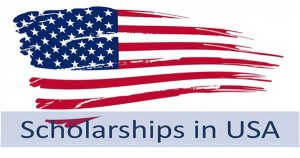
Studying abroad as an international student is a major financial investment but should not deter motivated learners from pursuing educational opportunities worldwide. With strategic planning, dedicated research, and by leveraging various funding sources, international dreams of attending university in Canada can become reality.
This guide will explore in-depth the different types of financial assistance available to international students looking to fund their Canadian education. We will define key terms, outline eligibility requirements, provide dollar values where possible, and include direct application links and advice.
By the end, you should feel empowered with knowledge on crafting a multi-pronged financial strategy customized to their academic ambitions and background.
Defining Key Terms
Before exploring specific programs, it’s important to define some common funding terminology:
Scholarships
Scholarships are merit-based awards given for academic or extracurricular excellence that do not need to be paid back. They can be granted by universities, private organizations or donors based on criteria like grades, talents, background, areas of study etc.
Bursaries
Similar to scholarships, bursaries are non-repayable awards given to students based on financial need or personal circumstances negatively impacting their ability to afford education costs. Bursary recipients are often expected to maintain high grades.
Loans
Educational loans are sums of money borrowed to pay for tuition and living expenses, which must be repaid with interest according to flexible payment schedules and interest rates. Loans may be offered by government or private lenders.
Grants
Non-repayable funding awarded based on financial need, particular disadvantages faced, or other criteria laid out by grant providers. Grants help cover the cost of attendance and do not need to be repaid.
Tuition Waivers
The partial or full exemption of tuition fees owed to an educational institution. Waivers are usually merit-based, need-based, or awarded for other compelling reasons set out by the school.
Having defined these core concepts, the subsequent sections will explore specific funding programs in greater detail. Strap in for an in-depth overview!
Government Financial Aid Programs in Canada
The Canadian federal and provincial governments offer need-based loans, grants and bursary programs to make post-secondary education affordable regardless of citizenship:

Canada Student Loans Program (CSLP)
- Low-interest government loans of up to $210/week for full-time students
- Part-time loan amounts prorated based on course load
- Borrowers have 9-24 months post-graduation grace period before repayment
- Applicants must demonstrate financial need via submitted budget form
- Permanent residents and refugees commonly qualify
Canada Student Grants Program
- Non-repayable grants of $250-3,000/term awarded based on financial need
- Eligibility reassessed each term based on any changes in student’s situation
- Funds help cover costs of tuition, housing, living expenses, transportation
- International students may be eligible as program assesses need, not status
Canada Student Grants for Services and Equipment for Persons with Permanent Disabilities
- Non-repayable grants of up $8,000/term for students with demonstrated disabilities
- Covers education-related costs caused by disabilities like tutoring, technology, attendants
- Applicants require official proof of disability diagnosis and education impact
Be sure to examine all government programs available provincially as some like Alberta offer additional funding support through Ministry of Advanced Education budget programs. Comprehensive research is key.
University Scholarships and Bursaries
Most Canadian post-secondary institutions provide funding directly targeted at recruiting and retaining talented international cohorts. Here are some examples of internal awards to consider:
Entrance/Renewable Scholarships
Amounts vary greatly from $500-$15,000 based on academic merit
Awarded upon admission or annually for maintaining high GPAs
May be faculty-specific or target certain nationalities/regions
Important to check deadlines as early as 9-12 months before start
Department/Research Awards
- Often more substantial sums for graduate research ambitions
- Connect with faculty members directly about funding opportunities
- Strong letters of intent and CVs needed when inquiring
Talent-Based Scholarships
- Target students excelling in athletics, arts, leadership abilities
- Portfolios and additional documentation often part of unique applications
- Continued involvement usually expected during studies
International Student Bursaries
- Primarily need-based with emphasis on financial barriers faced
- Submission of detailed personal budgets/family income statements
- Maintaining minimum GPAs while pursuing relevant campus jobs
Private Scholarships
There are many external scholarships, foundations, and organizations that offer financial assistance exclusively for international students worldwide. A few notable ones include:
- Global Affairs Canada Scholarships for international studies – awards of up to $15,000 CAD.
- CBIE scholarships – supports promising international students studying in STEM or social sciences in Canada.
- Rotary scholarships – sponsors graduate and undergraduate study/vocational training worldwide for ambitious professionals.
- Fpa Canada awards – provides $5,000-10,000 CAD merit-based scholarships in business-related programs.
Researching scholarship databases can help uncover hidden awards tailored specifically to your background, country of origin, academic discipline, or career ambitions. Be strategic and diligent when applying.
On-Campus Jobs
Most Canadian universities offer on-campus job opportunities for international students such as working in campus libraries, cafeterias, offices, or as teaching/lab assistants.
- Jobs are usually part-time (under 20 hours per week) allowing students to focus on studies.
- Hourly wages start around minimum wage ($14/hour in Ontario for example).
- Jobs provide an excellent source of part-time income and valuable work experience in your field of study.
Be sure to inquire about campus employment opportunities early and keep checking job postings throughout your studies in Canada. Some schools even have special hiring fairs for international student jobs.
Provincial Nominee Programs
A few Canadian provinces have immigration nominee programs where international graduates can find work sponsorship and apply for permanent residence. This includes:
- Alberta Immigrant Nominee Program
- Saskatchewan Immigration and Career Opportunities
- Manitoba Provincial Nominee Program
By living and working in these provinces for 6-18 months after graduation, students become nominees for permanent residency under the Express Entry system. This can be an excellent way to transition to immigrant status.
FAQs
Q. What is the average cost of university for international students in Canada?
Average tuition fees for international students range from $15,000-35,000 CAD per academic year depending on the program and university. Living expenses are another $10,000-15,000 annually.
Q. How much funding do I need to demonstrate to get a Canadian study permit?
Most universities and Immigration authorities will expect international students to have a minimum of $10,000-15,000 CAD in funding for first year living expenses covered by personal/family funds, scholarships, on-campus jobs or other aid sources.
Q. What are my chances of getting a scholarship as an international student?
Opportunities exist but are quite competitive. On average, 5-15% of total international enrolment at a university may receive some form of non-repayable merit-based funding from external or internal scholarships programs. Early application is key.
Q. Can I work off-campus in Canada as an international student?
Generally no, international students are only permitted to work on-campus up to 20 hours per week during academic sessions. Off-campus/full-time work requires authorization and is usually only permitted after graduating from an eligible Canadian educational program.
Q . What are some top scholarship databases for international students?
- ScholarshipsCanada
- StudyinCanada
- Studyportals
- WES Scholarships and Financial Aid
- Fastweb
- Cappex
- Scholarships.com
Thoroughly researching these databases can uncover numerous external funding opportunities tailored for your circumstances.
Conclusion
While pursuing higher education abroad as an international student carries costs, adequate financial aid options exist for motivated students willing to invest time in research and applications. With diligent planning and a strategic multi-pronged funding approach, international dreams of studying in Canada can become reality.
Never underestimate networking’s ability to uncover additional resource opportunities also. Approach the steward path to your overseas academic dreams with diligence, patience and optimism. Having immersed yourself in subsidies demystification, you now hold power pursuing them confidently..






